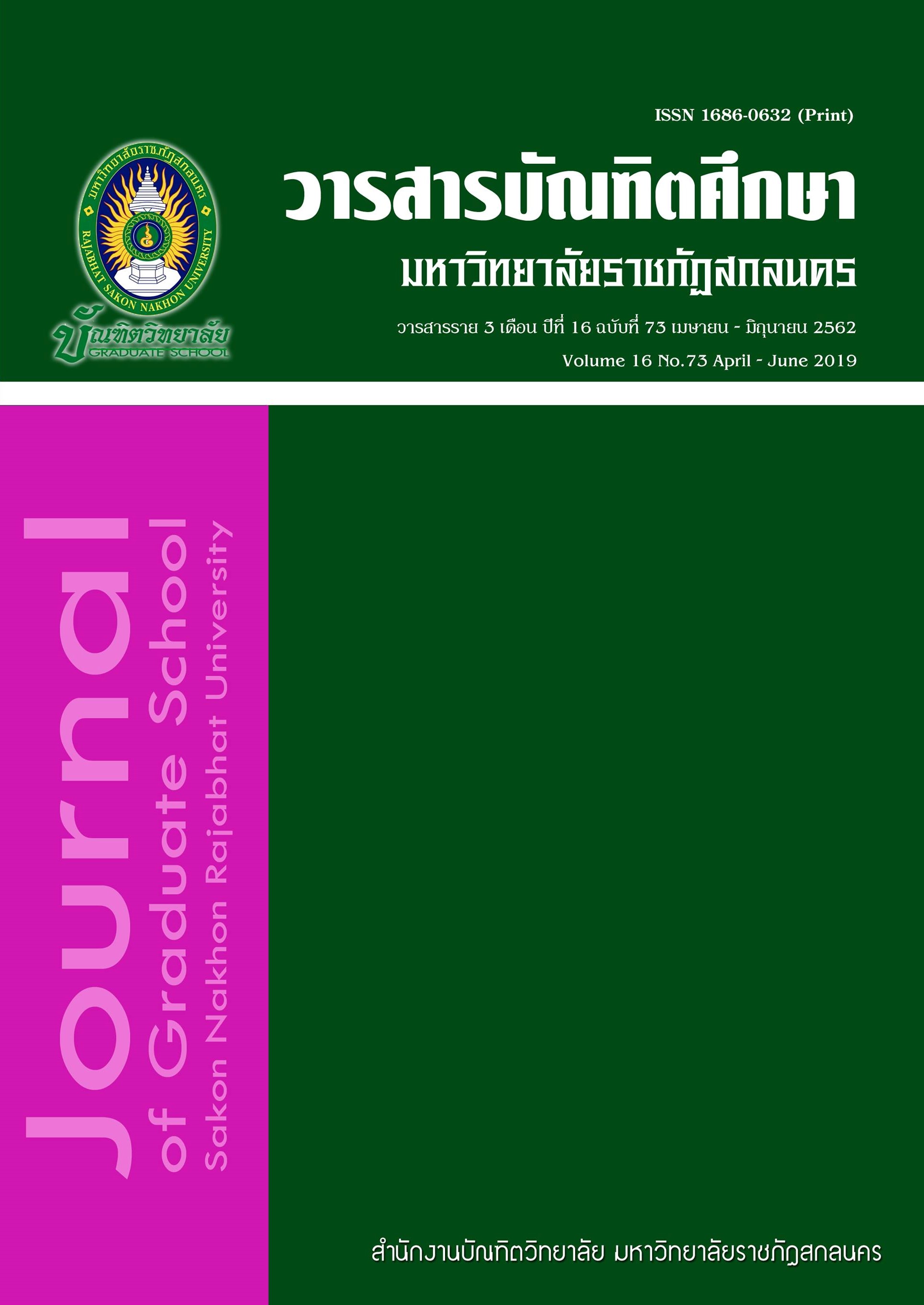การจัดการเรียนการสอนเพื่อส่งเสริมทักษะการเรียนรู้ในศตวรรษที่ 21
Main Article Content
Abstract
Extensive instruction have been developed and implemented since the past to present. And, the instructional model plays a crucial role in promoting the learners to achieve their maximum potential. So, implementing appropriate instructional model allows the learners to fully excel in their learning. Consequently, the instruction should focus on stimulating the learners to get involved in practicing their skills, thinking process, and self-initiated learning by using variety of learning resources and hands-on practice in order to apply the knowledge for the real practice. Also, teachers can use various types of instruction to encourage the learners to achieve the intended learning objectives. In this regard, the researchers studied cognitive learning theory by Piaget which focuses on the learning related to environment, background knowledge, and local context that favors the learning; cognitive theory by Buner which concentrates on designing knowledge structure and
concerning on the practice where by the learners create internalized image and using symbols; needs theory by Thorndike which focuses on practice or frequent actions for enduring knowledge retention; learning theory by Knowles which emphasizes on the learners frequently applying the knowledge, integrated learning by giving praise, and exhibition for motivation to achieve the goals; Bloom Taxonomy’s integrated 3 domains of learning which include cognitive, affective, and psychomotor for instructional management; self-constructed learning; collaborative learning; brain-based learning; and 21st century learning skills. The synthesis of the afore-mentioned learning theories leads to the formulation of the instructional model empowering the 21st century learning which comprises 6 steps: 1) Preparation; 2) Engage; 3) Action; 4) Pack; 5) Apply ; and 6) Checking. The developed model aims to promote 3 domains of learning, that is, 1) Thinking and problem-solving skills; 2) Information and communication skills; and 3) Interpersonal interaction and self-directed skills. So, instructional management empowering 21st century learning skills must encourage the learners to bridge knowledge and real life. Also, the learning must be meaningful that accounts for powerful and valuable learning. So, the developed model could be regarded as another practical model to empower teaching and learning for ultimate benefits of the learners who are the future of the nation.
Article Details
บทความทุกบทความที่ตีพิมพ์ในวารสารบัณฑิตศึกษา มหาวิทยาลัยราชภัฏสกลนคร ถือว่าเป็นลิขสิทธิ์ของบัณฑิตวิทยาลัย มหาวิทยาลัยราชภัฏสกลนคร
